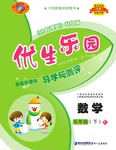题目内容
【题目】假如你已在新南威尔士大学留学一年多,现在写一篇五句话作文描述这一年多以来在悉尼的生活。
开头已写好。不计入总句数。
【写作内容】
吃 | 上课期间:拥挤的学生餐厅;周末:中餐馆 |
住 | 开始:寄宿家庭,有些规则让人不舒服;后来:学生宿舍,更多自由 |
学 | 学术要求与国内不同;自己的观点很重要; 比高三更努力;从缺乏自信到自主学习 |
玩 | 周末和朋友(多数为中国学生)外出,欣赏风景,拍照 |
【写作要求】
1. 只能使用5个句子表达全部内容;
2. 适当添加细节以使文章连贯。
3. 作文中不能出现真实姓名和学校名称。
【评分标准】
句子结构准确,信息内容完整,篇章结构连贯。
After learning at The University of New South Wales for more than one year,I would like to describe my life in Sydney as “work hard, play hard”.
【答案】
After learning at The University of New South Wales for more than one year,I would like to describe my life in Sydney as “work hard, play hard”.
I first lived in a host family, but (as I was) uncomfortable with some of the rules set down by the host family, I have moved to student accommodation, where I enjoy more freedom. The academic requirements are quite different from those at home and the most important thing is that you must have your own opinion whether (you are) in class or (you are) writing an essay. At first I lacked confidence, but I worked even harder than when I was in Senior 3 and now I'm beginning to get the idea and becoming a more autonomous learner. On weekdays, when we have classes, I eat in the student cafeteria,which is always crowded. I like to go out on weekends with my friends, most of whom are Chinese students, enjoying the beautiful scenery, taking pictures and eating in Chinese restaurants.
【解析】
试题分析:这是一篇记叙文,要求写一篇文章来讲述自己的留学生活。要注意以下几点:1、首先要认真审题,题目要求主要有三方面:吃、住、学、玩,都在表格里仔细的列了出来,注意详略安排。2、以所给的要求为基础,灵活运用英语知识,采用不同的表达方式将各要点完整地表述出来。3、同时使文章应具有一定的连贯性,注意认真查验是否有漏写情况,有无拼写错误及标点误用等。
【亮点说明】文章主次分明,详略得当,语言十分准确、简洁,包含了所有的要点,写出了自己留学生活的情况。运用了多种不同的词汇和短语,如a host family寄宿家庭,set down制定,At first一开始,lacked confidence缺乏信心,a more autonomous learner一个自主学习的学生等。且句式多变,如you must have your own opinion whether (you are) in class or (you are) writing an essay.运用了whether...or..的句式, I like to go out on weekends with my friends, most of whom are Chinese students, enjoying the beautiful scenery, taking pictures and eating in Chinese restaurants.中运用了非限制性定语从句,以及非谓语形式,使文章增加了不少亮点。

 优生乐园系列答案
优生乐园系列答案